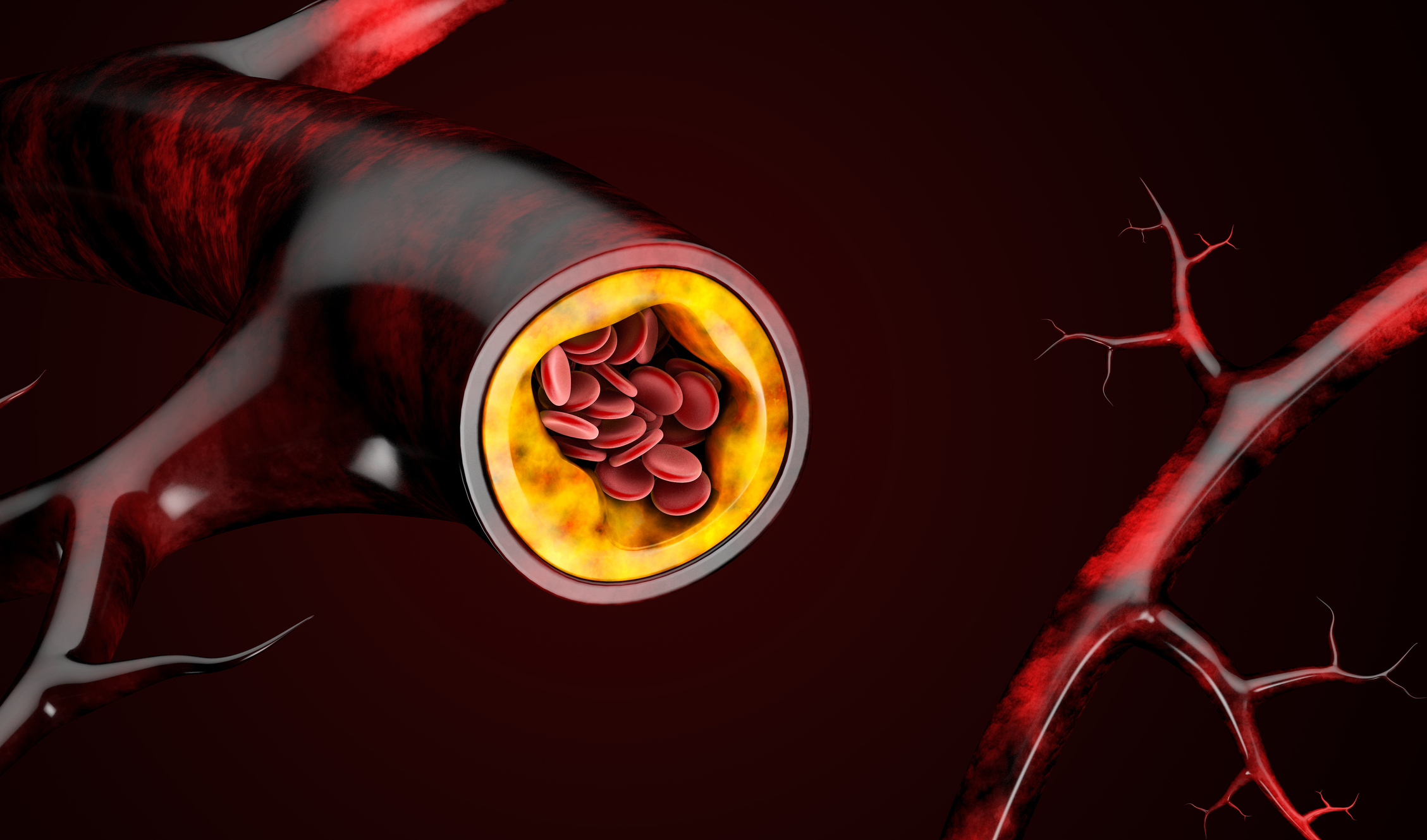Get Easy Health Digest™ in your inbox and don’t miss a thing when you subscribe today. Plus, get the free bonus report, Mother Nature’s Tips, Tricks and Remedies for Cholesterol, Blood Pressure & Blood Sugar as my way of saying welcome to the community!
Fats, carbs, fiber and lowering your cholesterol

Improving health — regardless of what you do to improve it — can help lower cholesterol. That includes exercising more, losing weight, reducing stress, stopping smoking, and improving diet.
Of all those, improving your diet has the greatest potential to reward you with the biggest cholesterol drops.
Lowering cholesterol with diet
Some foods raise cholesterol. The main culprits are foods high in saturated fats and/or simple/processed carbohydrates.
One obvious strategy for lowering cholesterol, therefore, is to avoid those foods. And that, for sure, is essential — but sometimes people take this to the wrong extreme. For emphasis, eating to lower cholesterol does NOT mean eating a low fat or low carb diet!
What it does mean is choosing healthy fats and healthy carbs instead. I’ll explain…
What fats help in lowering cholesterol?
Healthy fats are unsaturated, meaning they are liquid at room temperature. They come primarily from plant sources (as opposed to saturated fats that come from animal-based sources). Healthy fats include those found in olive oil, the oils in nuts and seeds, the oils in avocados and the oils in fish.
These fats help lower LDL in most people. At worst they’re neutral in this regard. As a big bonus, unsaturated fats also help raise HDL and lower TGs.
What carbohydrates help lower cholesterol?
Healthy carbs are complex/unprocessed carbs. In other words, carbs as close to their original form as possible. That means steel-cut oats instead of puffy oat cereal. An apple, not apple sauce or apple juice. In their most original form, carbs are the healthiest choice because they are difficult to digest and are high in fiber and plant sterols.
The “difficult to digest” part means that they are broken down and absorbed slowly, meaning blood sugar levels don’t spike. When insulin levels don’t spike, you’re not placed into that counterproductive storage mode we discussed in Part 2.
In other words, by eating complex/unprocessed carbs you’re helping to tamp down insulin release and avoid the simple carb-mediated rise in LDL levels.
How does fiber help lower cholesterol?
To answer this, we first have to understand something about the natural cholesterol circulation system we all have in our bodies.
Every time you eat, bile is squeezed into the digestive system to help digest the food you just consumed. Bile is very cholesterol-rich. It’s one of the things we use circulating cholesterol to make. And we need a certain amount of bile always at the ready so we can digest food at any time.
To keep that store of bile at adequate levels, we either need to pull cholesterol from the bloodstream to make bile for the next meal or reabsorb any bile not used up in the digestive process. The more bile we fail to reabsorb, the more circulating cholesterol we need to bring back to the liver to make bile for the next meal — which means circulating cholesterol levels drop. With me so far?
This is how the original cholesterol-lowering drugs worked. They were called “bile acid resins” or “bile acid sequestrants” and they literally bound bile inside the digestive system so that you eliminated it through the stool. And these medications worked! LDL levels dropped!
The problem was that bile sequestrants came as messy powders, you had to remember to take them with food, and they often caused stomach upset. So when statins came along, these medications were pushed to the sidelines. But that doesn’t mean the underlying biochemical pathways went away!
OK — we finally get to fiber. Fiber wastes bile because we can’t digest it. So you have a bile acid molecule attach itself to a fiber molecule and try to digest it. But before the bile figures out this is a futile mission, it’s past the point of no return. So people who eat diets high in fiber tend to waste more bile and therefore have lower cholesterol levels.
As an aside, fiber only comes from plants as part of a carbohydrate package. Meat and dairy do not contain fiber. This is why “low carb” diets (keto, paleo, Atkins, etc.) are often counterproductive to cholesterol management — especially once the weight loss levels off.
How do plant sterols help lower cholesterol?
Plant sterols are also part and parcel of whole plants and are basically the plant versions of cholesterol. Which seems odd. Why would you eat cholesterol to lower cholesterol? We go back to that bile circulation process we just discussed.
Plant sterols leverage the same biochemistry but in a different way. Plant sterols trick the body. They’re similar — but different — as compared to bile cholesterol.
They’re similar enough that the body thinks those plant sterols are just like the bile cholesterol it needs to reabsorb. But because the sterols are just slightly different structurally, they can’t get through the bile absorption sites — and end up blocking them. This means bile has fewer spots through which to gain entry back into the body. And so we waste more bile. And LDL levels drop.
Are you starting to see the rationale behind Step One Foods’ composition?
This post is part three of a series by Dr. Klodas on cholesterol. For more info, read part one and part two at Steponefoods.com.
Editor’s note: Are you feeling unusually tired? You may think this is normal aging, but the problem could be your master hormone. When it’s not working, your risk of age-related diseases skyrockets. To reset what many call “the trigger for all disease” and live better, longer, click here to discover The Insulin Factor: How to Repair Your Body’s Master Controller and Conquer Chronic Disease!













